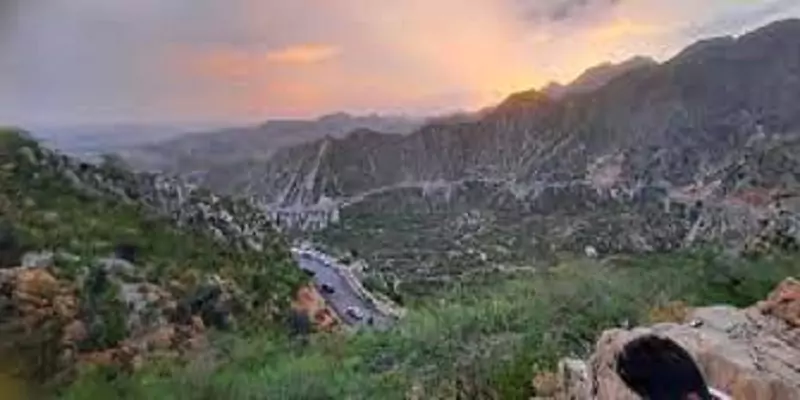Kohat
Kohat, a city steeped in history and surrounded by the rugged beauty of the Khyber Pakhtunkhwa (KPK) province in Pakistan, is a fascinating blend of tradition and progress. This comprehensive exploration delves into the geography, history, culture, economy, education, landmarks, and the unique characteristics that define Kohat.
Nestled in the heart of KPK, Kohat is strategically located on the eastern side of the Sulaiman Mountain Range. The city lies on the banks of the Kurram River, contributing to its agricultural fertility. Surrounded by hills and plateaus, Kohat boasts a unique topography that includes plains, valleys, and rocky terrains.
Kohat's history is a tapestry woven with threads from various civilizations. It has been inhabited since ancient times, with traces of the Gandhara civilization evident in archaeological findings. The region has witnessed the rise and fall of empires, including the Mauryan and Gupta periods. The city gained prominence during the Mughal era and later served as a gateway to the Afghan frontier during the British colonial period.
Kohat is a melting pot of diverse cultures, primarily influenced by Pashtun traditions. The city's cultural tapestry is woven with Pashto language, traditional music, and vibrant festivals. The bazaars are adorned with handicrafts and textiles that reflect the rich heritage of the region. The people of Kohat take pride in their hospitality and honor the cultural values passed down through generations.
The economy of Kohat is multifaceted, with agriculture, trade, and industry playing vital roles. The fertile land surrounding the city supports the cultivation of crops like wheat, sugarcane, and fruits. Kohat is an industrial hub with a focus on manufacturing, particularly in sectors like cement, textiles, and pharmaceuticals. The city's strategic location contributes to its significance as a commercial and trade center.
Kohat boasts a robust educational infrastructure with a focus on academic excellence. Educational institutions like Kohat University of Science and Technology (KUST) and various colleges contribute to the city's intellectual growth. The literacy rate is steadily increasing, and efforts are underway to enhance educational opportunities for the residents of Kohat.
Landmarks and Attractions:
1. Kohat Fort:
An iconic symbol of the city's historical significance, Kohat Fort dates back to the Mughal era. Its architecture and strategic location offer a glimpse into the region's past.
2. Jalozai Refugee Camp:
While primarily known for its historical landmarks, Kohat is also notable for hosting the Jalozai Refugee Camp, which has played a crucial role in providing shelter to displaced individuals during periods of conflict.
3. Kacha Pakka Park:
A recreational oasis in the heart of the city, Kacha Pakka Park provides a serene environment for residents and visitors. The park features green spaces, walking paths, and recreational facilities.
4. Tanda Dam:
Located near Kohat, Tanda Dam is a picturesque reservoir surrounded by hills. It serves as a popular destination for picnics, boating, and enjoying the natural beauty of the region.
Tourism:
Kohat, although not widely recognized as a tourist destination, offers a unique experience for travelers seeking historical sites, natural beauty, and a taste of Pashtun culture. The city's landmarks, coupled with the warmth of its people, make it an intriguing stop for those exploring KPK.
Kohat experiences a semi-arid climate, characterized by hot summers and relatively mild winters. The summer months can be warm, but the city enjoys a more moderate climate compared to some other parts of Pakistan. The winter season brings cooler temperatures, making it a pleasant time for outdoor activities.
Kohat's infrastructure has seen improvements in recent years, with a focus on enhancing connectivity and basic amenities. Well-maintained roads connect the city to major centers, and public transportation options are readily available. The healthcare system is bolstered by modern hospitals and medical facilities.
As Kohat looks towards the future, there is a concerted effort to balance urban development with environmental preservation. The city aims to attract more investment, promote sustainable practices, and further develop its educational and healthcare sectors. The focus is on fostering a community that embraces progress while staying connected to its cultural roots.
Kohat stands as a testament to the resilience of a city that has witnessed the passage of time and the ebb and flow of history. Its rich cultural heritage, diverse landscapes, and economic vitality make it a distinctive part of the Khyber Pakhtunkhwa province. As Kohat evolves, it holds the promise of continued growth and prosperity while cherishing the traditions that define its identity.

